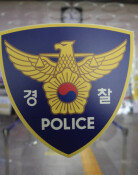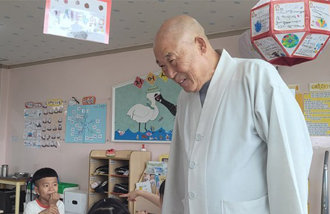Koreas Middle-Aged Men in 2005
After spending time wandering on the street or playing cards in cyber cafés, Mr. Kim comes home around lunch time to find a note that his meal is in the microwave. He reheats the rice and soup and takes out side dishes from the refrigerator. In the middle of his lunch, however, he sometimes bursts into tears when it comes across his mind that his mother, who lives separately from him, might feel so unhappy if she finds out the situation his life is in.
Meeting his friends who are still working is also frustrating. He feels sick and tired of listening to the complaints of friends who got divorced while financing their wives and children staying abroad for the kids education. Even those who seemingly have no trouble complain that they have no idea what they have so far been endeavoring for, lamenting, I have been confident that having never spent any single penny or second for my own health or pleasure, I have always devoted my entire life to my family and work, but
There are a series of warning signs that middle-aged men of our society are feeling a severe sense of emergency, mentally and physically, in their daily lives.
The severity of stress faced by Korean males in their workplace has already been well-known worldwide. Recently, however, an increasing number of men are suffering from stress and a sense of isolation in every aspect of life, not only in their careers, but also in their family lives and friendships.
The Man Hotline, a counseling center for men, has counseled 1,479 people in the first half of this year alone. Major troubles for those counseled, mostly in their forties or early fifties, included a loss of economic power, marital discord caused by their wives love affairs, and a sense of isolation within the family.
The problem is that these mens feelings of a sense of emergency are not confined to particular cases like the unemployed. Even among those showing no signs of problems on the surface, a growing number of men say they are suffering mental panic out of the stress from insecurities in their employment and lives after retirement as well as the disintegration of their families, said Professor Woo Jong-min, a neuropsychiatry expert at Inje University Seoul Paik Hospital.
According to the publication, Birth and Death Statistics 2004 released on August 26 by the National Statistical Office (NSO), the death rate of men in their fifties was 2.98 times higher than that of women in the same age group. The ratio stood at 2.77 in the forties, 2.55 in the sixties and 2.12 in the thirties.
The number of male suicides aged between 40 and 49 rose from 1,039 in 2001 to 1,308 in 2002 and 1,681 in 2003. The number of men in their fifties who killed themselves also soared from 842 in 2001 to 1,241 in 2003.
Men who grew up being influenced from the patriarchic values, are confused about the incoming changes that they are totally unprepared for, said Lee Ok-yi, the head of the Man Hotline. Of course, the pain and suffering faced by men might be less than the disadvantages that many women have gone through due to inequality between men and women. Having less adaptability to crises and changes than women, however, men seem to be suffering much more.
Chin-Ku Lee Sang-Hoon Kim sys1201@donga.com corekim@donga.com







